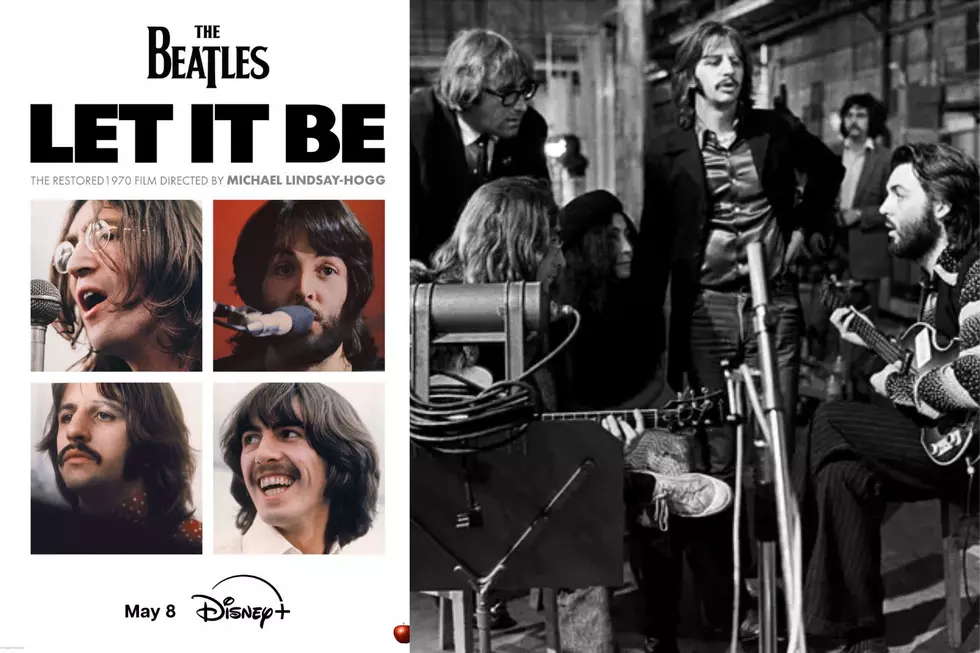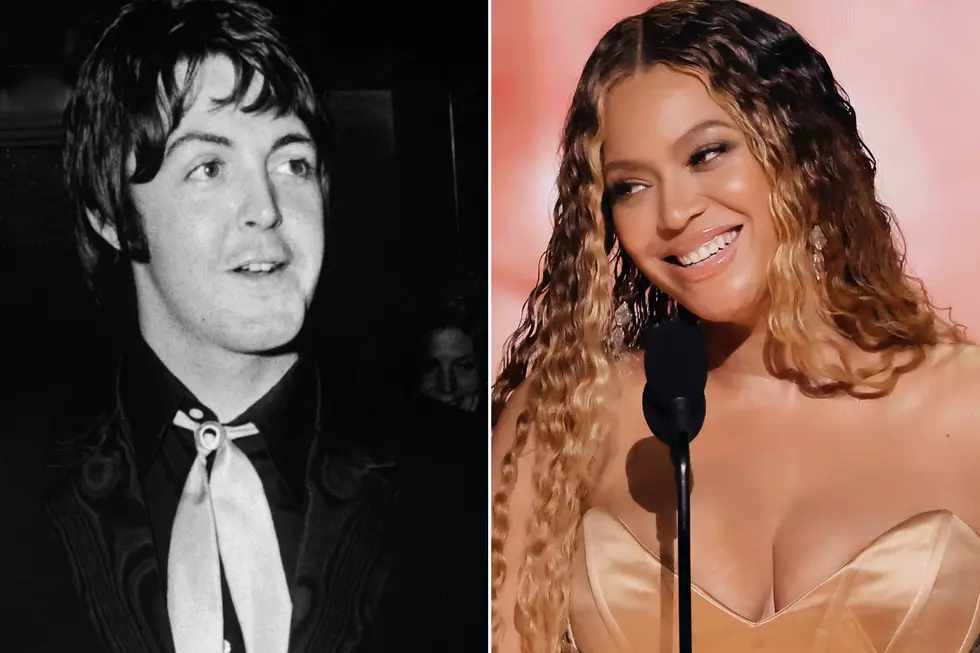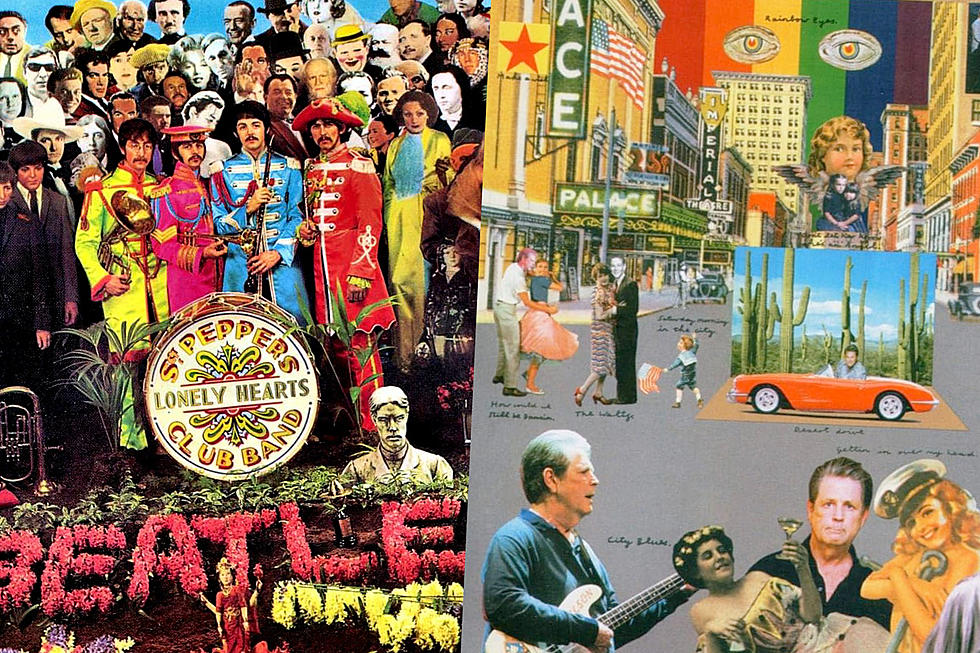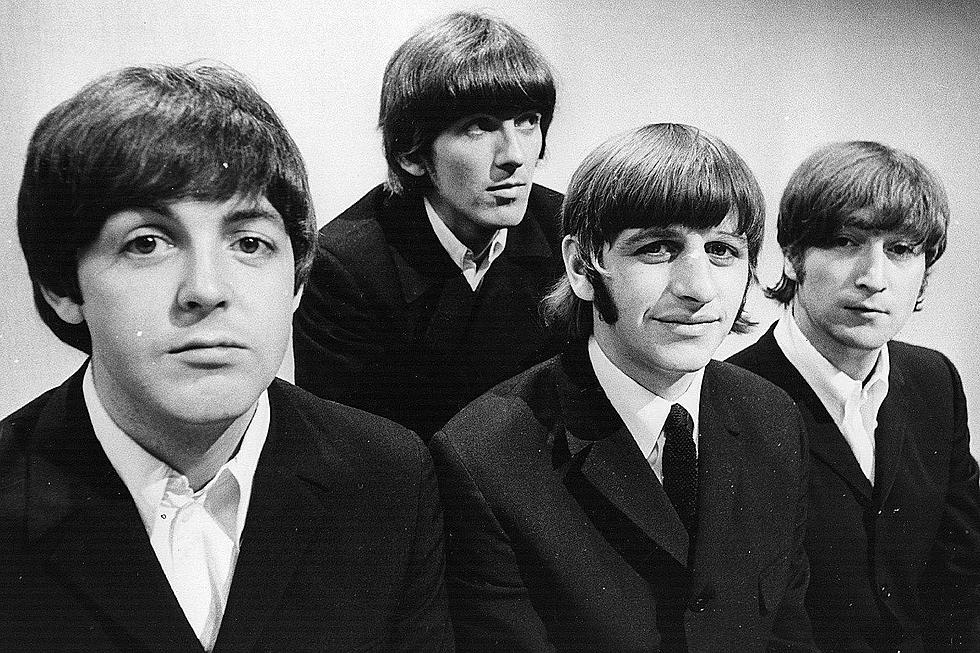
55 Years Ago: Beatlemania Begins to Spin Out of Control With ‘A Hard Day’s Night’
Beatlemania is likely to fascinate social commentators, psychologists and wannabe billionaires forever.
The phenomenon marked a decisive change in a number of cultural forces and launched countless attempts to copy it, with varying degrees of success over the years.
In the Beatles’ home nation, the frenzy had built up over a period of around 18 months; in the U.S., however, it was an incredibly sudden thing. In February 1964, the Fab Four appeared on The Ed Sullivan Show to an audience of almost a third of America, marking the first stage of national exposition. Millions of people were converted to the Beatles cause literally overnight. But it was on June 25 of that year that an important breakthrough moment came behind the scenes. Some media executives came to the conclusion that they couldn’t control what was happening, so they simply decided to capitalize and monetize upon it.
New York radio station WMCA was the torch that lit the fire. Even though it was 10 days ahead of the release of the Beatles' fourth U.S. album, A Hard Day’s Night – the soundtrack to the movie of the same name – the station played the LP in full. The result was almost instantaneous, as author Stephen Glynn noted.
“This culminated in advance orders of over two million for the soundtrack album, making A Hard Day’s Night potentially the biggest-selling album to date in the U.S.A.," he wrote. "Before the final print of the film had been released by the laboratory, the tie-in soundtrack album, itself still at the presses, had not only guaranteed itself No. 1 position in the charts, but had ensured that the budget of £200,000 had already been exceeded twice over in profits.”
While United Artists executives dealt with the process of ordering more albums – they’d initially pressed 500,000 – the decision was made to stage a rush-release of the copies that existed. So, on June 26, 1964, A Hard Day’s Night went on sale, a full 10 days before its scheduled date (to tie in with the movie’s premiere in England). “A Hard Day’s Night turned into a hard day’s work for UA, who … rushed to release the album nationally,” Billboard reported.
(In the U.K., a different version of A Hard Day's Night was released as the Beatles' third album on July 10.)
Watch the Trailer for ‘A Hard Day’s Night’
The WMCA incident also marked a change in relations between radio stations and record labels, as the article explained. It increased radio’s desire to secure exclusive advance plays while also leaving labels to question whether they should just live with the copyright breaches such plays entailed. (Stations managed to prevent competitors from recording exclusives on the air by dropping in voice messages throughout the playback.)
Label staff was already living under dire threats of dismissal for “slipping disks,” but radio execs appeared to be offering inducements that made the risk worthwhile. “It’s like dealing with a blackmailer,” one promotions executive told Billboard. “The more you give him, the more he wants, and there’s no way out.”
Tensions were heightened around A Hard Day’s Night because of the way the deal was made. UA set out to sign the Beatles up to a movie, but an ulterior motive was to secure the rights to the soundtrack album too, taking on rivals Capitol Records, which had otherwise exclusive rights to the Beatles’ U.S. records. In fact, Capitol had the right to release the material that appeared on A Hard Day’s Night, as long as it didn’t use the same title, and was in the process of preparing Something New – a modified version of A Hard Day’s Night – which would eventually arrive on July 20, 10 days before its own scheduled release date.
The frenzy over A Hard Day’s Night did no harm whatsoever to the movie, which was released as planned on July 6 – only, instead of the several hundred prints that had been planned for delivery to theaters across the world, between 1,500 and 1,800 were actually made; and UA reported that the film would reach “saturation” globally, with “more prints in circulation than for any other pic in history.”
Beatlemania had a downside for the band – with concert equipment not up to the job of delivering the music above the sound of screaming fans, live shows became joyless for the group, and the Beatles would end their touring career before the end of the year. (Three weeks after the movie's release, John Lennon’s previously uncontroversial comment about the Beatles being “more popular than Jesus” would come back to haunt him and his bandmates.)
A Hard Day’s Night could be considered nothing but a success by happy UA bosses, as the album easily took the No. 1 spot and stayed there for 14 weeks, perched on the chart for 51 weeks. It sold more than 4 million copies and spawned the hit singles “A Hard Day’s Night,” “And I Love Her” and “I’ll Cry Instead,” the first of which sold more than a million. Something New also sold more than a million copies, even though it failed to topple the “original” album from No. 1, reaching only No. 2 instead.
Beatlemania, it seemed, would last forever, with no means to control it. Or at least, it could be suggested that there were certain parties who felt that, if they couldn’t control it, they wanted to ensure that no one else did either.
In the middle of 1964, Lennon still felt that manager Brian Epstein pulled the strings. “We owe him a great deal … because I think we might have been able to make hit records, because we would have written the songs anyway,” he said in a radio interview. “But he controls it, you see.”
Four years later, with Epstein dead a year, Lennon told Rolling Stone: “We’ve really had a lot of knocking. I mean, we’re always natural, I mean you can’t help it, we couldn’t have been where we are if we hadn’t done that. We wouldn’t have been us either. And it took four of us to enable us to do it, we couldn’t have done it alone and kept that up. I don’t know why I get knocked more often, I seem to open me mouth more often, something happens, I forget what I am till it all happens again. I mean we just get knocked – from the underground, the pop world – me personally. They’re all doing it. They’ve got to stop soon.”
The Best Song on Every Beatles Album
More From Ultimate Classic Rock









